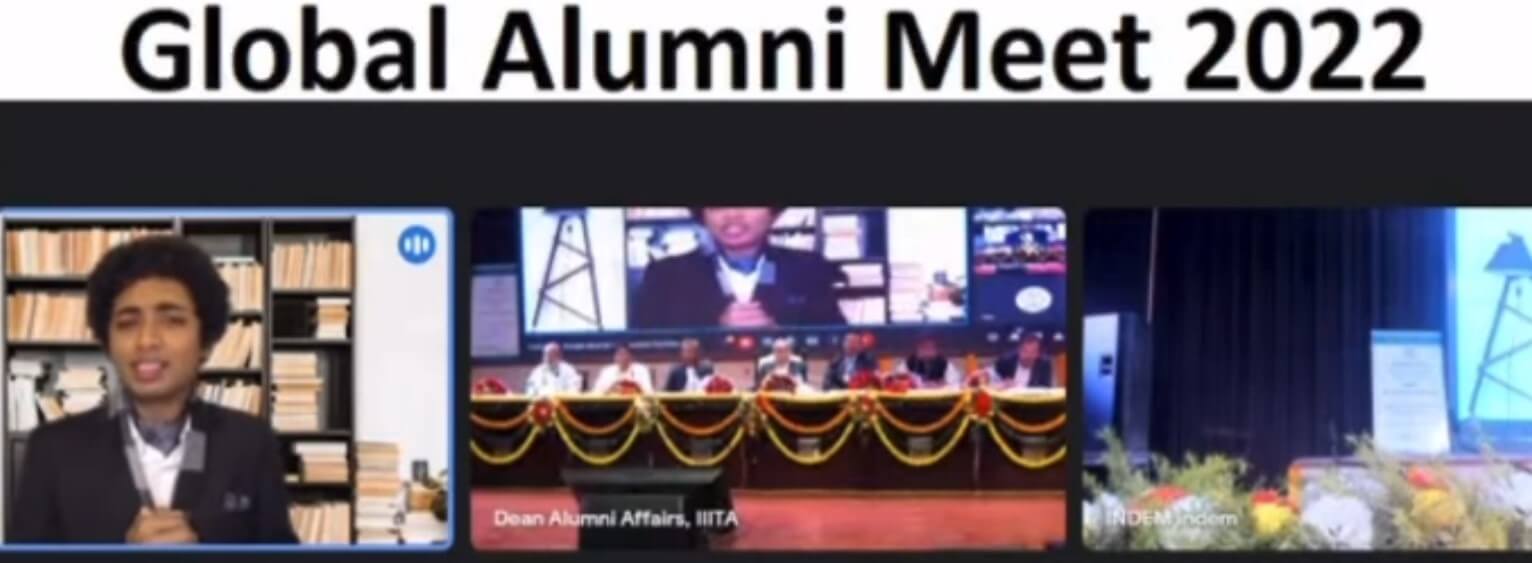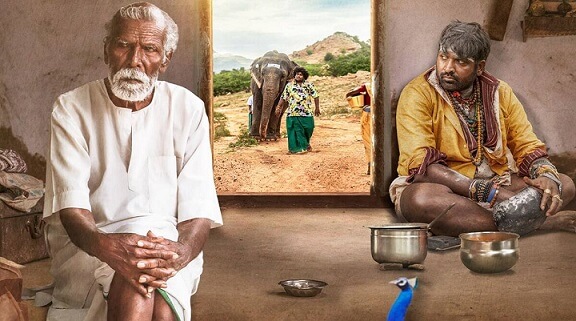YouTube link to view the speech delivered at the event: click here
Thank you, Dr. Anand Deshpande, Chairman, Board of Governors, IIIT Allahabad, Professor R. S. Verma, acting Director, IIIT Allahabad, Professor P. Nagabhushan, former Director, IIIT Allahabad, Professor Anupam, Dean, Alumni Affairs, and good morning to all faculty, students, and my fellow alumni. It is indeed an honor to be speaking here today.
I have always believed that IIIT Allahabad is special. I have visited many universities across the world and time and again, I have wondered how IIIT Allahabad made such a big mark for itself in just two decades. How did it do it? If you look back at 1999, it was a time when India was just starting to reap the fruits of economic liberalization. Nobody could have imagined then that an institute from Uttar Pradesh would rise so rapidly in such a short time. How IIIT Allahabad reached the heights where it is today? What factors led to the unprecedentedly rapid rise of this institution? How did it make a prominent place for itself amongst other distinguished universities established much earlier? I believe that the answer to these questions is threefold.
First, the name of our institute, IIIT “Allahabad” has a clue. Allahabad or Prayagraj, not only embodies the confluence of the holy Ganga and the mighty Yamuna, but rather the confluence of many cultures. The great emperor Ashoka installed a giant pillar here to promote tenets of Buddhism. The region’s significance has also been illustrated by the great poet Tulsidas in Ramacharitmanas by this beautiful verse
को कहि सकइ प्रयाग प्रभाऊ। कलुष पुंज कुंजर मृगराऊ।।
अस तीरथपति देखि सुहावा। सुख सागर रघुबर सुखु पावा।।
Who can express the glory of Prayag, its mere sight destroys the vessel of sin just like a lion annihilates an elephant. So serene is Prayag that even Rama, himself the ocean of bliss, became elated on visiting this king of pilgrimages.
Tulsidas’s contemporary, the great Mughal emperor Akbar was so thrilled on visiting the city that he named the place “Illahwas” or abode of Ilahi—a name that later became Allahabad.
This rich heritage of diversity and inclusion and its geographical location at the very heart of the Indian subcontinent is peculiar to Allahabad. IIIT Allahabad manifested this heritage and made everyone feel welcome and part of a shared family. Before entering the university, we lived at home in a cocoon. Moving to a new place with no friends or family is not easy, especially for the first time in life. That said, the welcoming family of faculty and seniors invariably made us feel comfortable from the outset. Coming from different parts of the nation and belonging to different religions, castes, cultures, and linguistic groups, we were still enmeshed together in a vibrant social life. I personally felt that this attachment was not limited to those associated with the institute but also extended to our canine companions on campus and underprivileged kids studying in Prayaas off-campus. I think this sense of belonging was one of the prime reasons that students at our institute also did very well from a mental health perspective. IIIT Allahabad really was home.
The second factor contributing to the rapid rise of IIIT Allahabad is that it has always been radical and dynamic in its vision. It had an absolutely different and shall I say, disruptive mindset that challenged the status quo. IIIT Allahabad’s mindset was ahead of its time. The IIIT Act passed in the Parliament states that these institutes have been established, “to emerge amongst the foremost institutions in information technology and allied fields of knowledge in the global context.” This phrase, “allied fields of knowledge,” was woven into the fabric of our institute’s vision in a verbatim and self-evident manner. The institute did not restrict itself to academic programs in information technology. It introduced degree programs in Bioinformatics, Human-computer Interaction, Business Informatics, Cyber Laws and Information Security, and other specialized research fields. I remember entering the institute with a vague idea of undertaking research in robotics, not knowing anything about what it entailed. But sure enough, the interdisciplinary nature of the curriculum and the fluid boundaries between the academic departments meant that I could join any lab and work on anything I wanted in the institute.
It astounds me how much our faculty enabled us. When I wanted to start EEG research in the institute, it had no equipment, and no researcher was working on the topic. But soon, multiple faculty members came forward trusting a mere undergrad, and within months they secured funds for me to start EEG research at the institute. Consider where our institute is located; we are not situated in a metropolitan city like some of our peer institutes—industry funding generally finds its way to those tech hubs quite easily. Yet, our faculty always did more with less. They paved the path for us to push forward with interdisciplinary connections.
Third, and perhaps the most crucial factor—the supportive alumni culture. Batch after batch, the alumni actively gave back to the institute by bringing knowledge and valuable connections. The initial batches of our institute took the responsibility of forging strong connections with industry and academia. They improved the institute’s visibility and became the ambassadors of our institute around the globe bringing it even more recognition.
Again, consider our location. Jhalwa was a very different place than it is now. There used to be more dust around you than buildings. But, the recognition provided by our alumni enabled us to host multiple Science Conclaves with many Nobel laureates and other distinguished researchers in attendance. It can hardly be overstated how much exposure and inspiration such events provided us. Sitting in the Bikanerwala cafeteria, I could reach out to an alumnus founding a start-up in Bengaluru, and to another one studying at Berkeley, yet another one working in Berlin, and I could be sure that they would wholeheartedly support me. As I see it, this supportive alumni culture has been critical to producing some of India’s best engineers, entrepreneurs, and innovators.
This supportive alumni culture also funneled down batch after batch to our seniors. My seniors encouraged me to dream big. Once, I was working on a project at the intersection of biosensing and rehabilitation, for which the seniors motivated me to explore various applications, they taught me advanced scientific concepts underpinning the research, and they provided insights into how to publish my findings. Later, they helped me in preparing applications for higher studies, and they also provided me financial assistance when I needed it. These are just a few examples. But such little things compounded over years enabled me to reach my goals. Because of all these factors, I firmly believe that IIIT Allahabad is a special place.
Looking back, I also asked myself: what has IIIT Allahabad taught me? Well, in a strictly professional sense, it taught me everything academically, to do what I do today. But, beyond that, the institute bequeathed me its own secret sauce to being special—it taught me to appreciate diversity, to be disruptive in my work, and to be supportive of my peers. It made me realize my true potential inspiring me to serve our nation and humanity at large. It also taught me the true meaning of friendships—some of which I treasure today more than anything else.
Of course, just like our nation, our institute has evolved over the years. Today, IIIT Allahabad is more modern, progressive, and assertive. It has pursued the 21st century’s technological wave spreading our community in diverse roles across industry, government, and academia. There is hardly any corner of the world where our alumni are not working in leadership roles. I implore all of you to consider where we got our beginnings; where we acquired the tools and opportunities to succeed—and think about how we can give back! It could be as little as a conversation with your peers and fresh graduates about your experience, or starting a new scholarship at the institute.
Let us take this opportunity to collectively consider how we can build a spirit of long-term trust and collaboration between the institute and the alumni. I am hopeful that going ahead we will double down on our efforts in this direction.
I congratulate the institute’s administration and especially the organizing committee for their hard work ensuring that this alumni meet will be successful. I look forward as eagerly as ever to working closely with my special institute and giving back to my alma mater in the coming years. Thank you!

 Way Ahead of Bollywood: The Exceptional Realism of the Parallel Tamil Cinema Tackling Social Issues
Way Ahead of Bollywood: The Exceptional Realism of the Parallel Tamil Cinema Tackling Social Issues